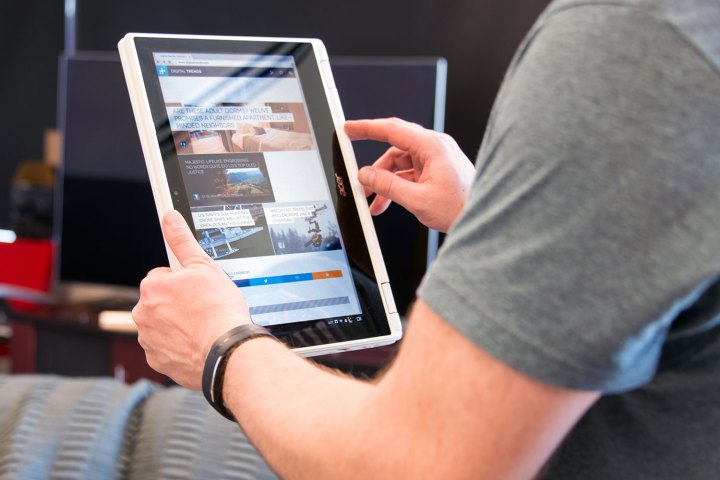
“The same apps that run on phones and tablets can now run on Chromebooks without compromising their speed, simplicity or security,” said members of the Chrome OS team. “This is good for users and great for developers – in addition to phones and tablets, they will be able to easily bring their apps to laptops. And all this is built on top of Chrome OS, so users will continue to have everything they love in their Chromebooks.”
The update adding support for Google Play landed on the Asus Chromebook Flip last month, and now there are reports that the update has finally arrived on the latter two models. Once these two units receive the update, users simply reboot the device and then sign into the new Google Play app using their current Chromebook account sign-in credentials.
Right now, Android app support on Chrome OS seems a little spotty in regards to performance and availability. Reportedly not all Android apps currently run on Google’s notebook platform, and some of those that were recently tested on Acer’s Chromebook R11 – even one of Google’s own first-party apps – caused a little trouble.
However, Marvel Unlimited, Amazon Kindle, Netflix, Google Play Movies, and several others installed on the Acer device reportedly work just fine, recognizing the touchscreen, touchpad, or mouse input. They even adjust their layout and position when the Chromebook is switched from notebook to tablet mode, and when the screen moves from portrait to landscape mode. Alternate web browsers and Microsoft’s Office apps work just fine too, it seems.
Owners of these three devices can also side-load Android apps by enabling developer mode. Once that is done, simply go into the Chrome OS settings, locate the Android Apps section, and click on the “Manage your Android apps on Settings” link. There’s a toggle labeled “Unknown app” that can be switched on to enable the installation of Android apps made available outside Google Play, such as Amazon’s Appstore and the Amazon Video app.
What’s interesting here is that the Android app experience offered on the Acer Chromebook R11 is reportedly identical to what you’ll find on the Asus Chromebook Flip. This is notable because the Asus model sports an ARM Cortex-A17 quad-core processor whereas the Acer model has an Intel Celeron x86 processor, two entirely different processor architectures.
If you already have a Chromebook and are itching to play with Android apps on your device, don’t fret. Google Play support will roll out to other models on the market “over time.” There’s a long list of Chromebooks that will get support for Google Play posted right here, but many may not receive the update until sometime in 2017. Even more, your Chromebook may not even play nice with many Android apps if there’s no touch screen present.
Google’s Chrome OS team said that the company is currently working with partners to launch Chromebooks with Google Play support already included. At the time, the team teased that additional details regarding these Chromebooks will roll out over the next several months.


